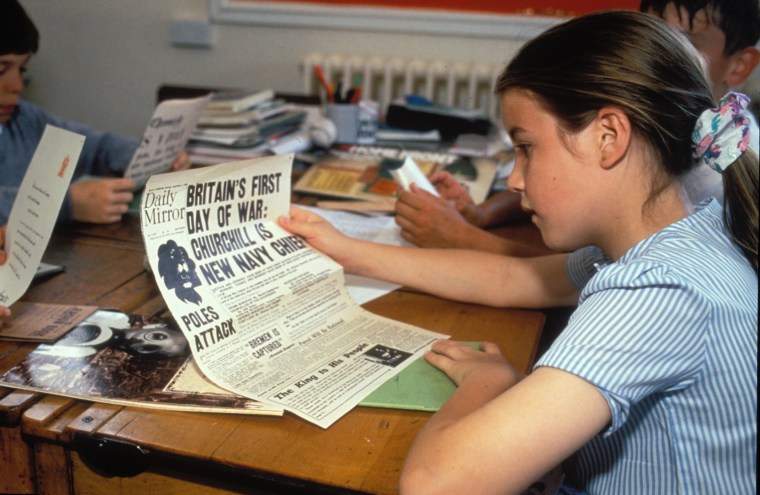
Catriona Pennell
University of Exeter
The AHRC has recently funded the Teaching and Learning War research network, which brings together EU and international researchers and educationalists, from a range of academic disciplines and professional backgrounds (including schools, museums, archives and heritage organisations), to explore young people’s engagement with and receptivity to the cultural memory messages of the two world wars from an international comparative perspective. At the centenary of WW1 in the UK, Australia, Canada, and New Zealand young people find themselves front and centre of both state-sponsored and community-level commemorations. As the two world wars fade from living memory, young people across the Commonwealth have been singled out as those who will be carrying the memory of the war forward. Early indications suggest similar emphasis will be placed on young people in the 80th and 90thanniversaries of WW2.
It is at this juncture, as the commemorative focus in Britain and the Commonwealth shifts from WW1 to WW2, that new questions arise about 1) the ways these cataclysmic events are taught in the 21st century, 2) what cultural memory messages feature in education, and 3) how young people respond to and interpret these messages. While study of memory and war remembrance has intensified in recent years, the way young people engage with the cultural messages about these seminal historical events is largely unexplored. Interrogating the practices of teaching and learning about war remembrance has the potential to illuminate how memories of war are shaped.
The two world wars – as crucial moments of crisis where the ‘British world’ came together as a larger community of common interest – remain significant features of the curriculum, both formal and informal, in Britain, Australia, Canada and New Zealand. At the same time, they raise important questions about the teaching of the history of the British Empire, an area of heated contemporary debate across the Commonwealth. These four case studies share a narrative of white, imperial masculinity and sacrifice for empire largely compatible with the rise of a sense of national identity, thus allowing for coherent enquiry. However, the distinctiveness (or otherwise) of these case studies needs to be held up against the experiences of indigenous peoples in these white settler colonies as well as the experience of non-white colonies in these conflicts. Three examples – Kenya, Jamaica and India – have been chosen based on existing expertise within the network and because they illuminate complexities of the experience and response to war (and its memory) in three distinct colonial contexts encompassed in the British Empire’s war efforts during the two world wars covering Africa, South Asia, and the Caribbean. Over the course of two years, led by Dr Catriona Pennell (History, University of Exeter) in collaboration with Dr Mark Sheehan (Education, Victoria, University of Wellington, New Zealand), four networking events (hosted in the UK and Australia) will centre on the following questions:
- How do young people think about the past?
- How have indigenous and/or ethnic minority histories been integrated into the representation and teaching of the two world wars?
- What role does empathy play in the teaching of the two world wars?
- How does youth-centred centenary commemorative activity compare across the British world?
For more information, please see the project’s twitter handle @teachlearnwar. A project webpage is under construction but links will be available via the PI’s previous project website http://ww1intheclassroom.exeter.ac.uk/

Reblogged this on hungarywolf.
1. My over 97 year old mother Hajiya Kande (Mairo Lawal Fatika) use to remember when she gave birth to her fist surviving child who happened to be my elder brother as “lokacin yakin Fitila” (in Hausa language) meaning during the Hitler’s war.
2. A Hausa saying capture the world wars with reference to German race as “German bata kasa, German kwace kasa, nasara masu kayan aiki” which can literally means Germans spoilers of states, Germans seizers of states, Europeans with the goods of work.